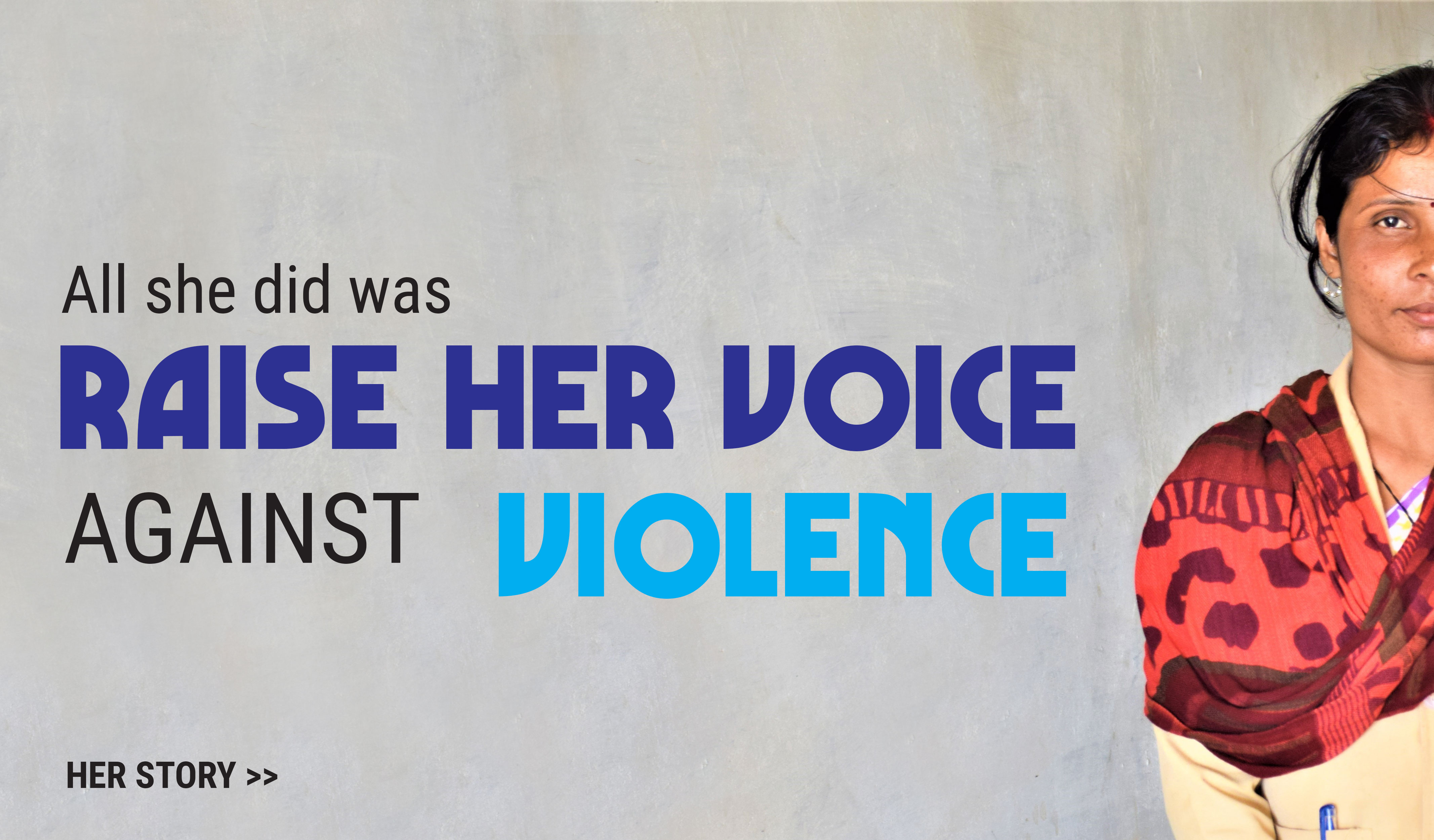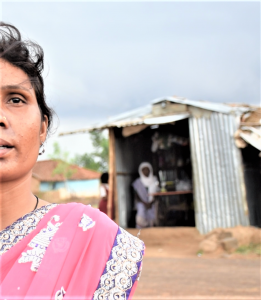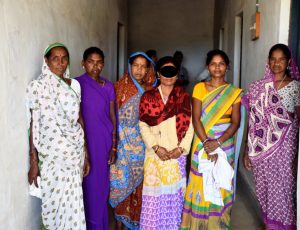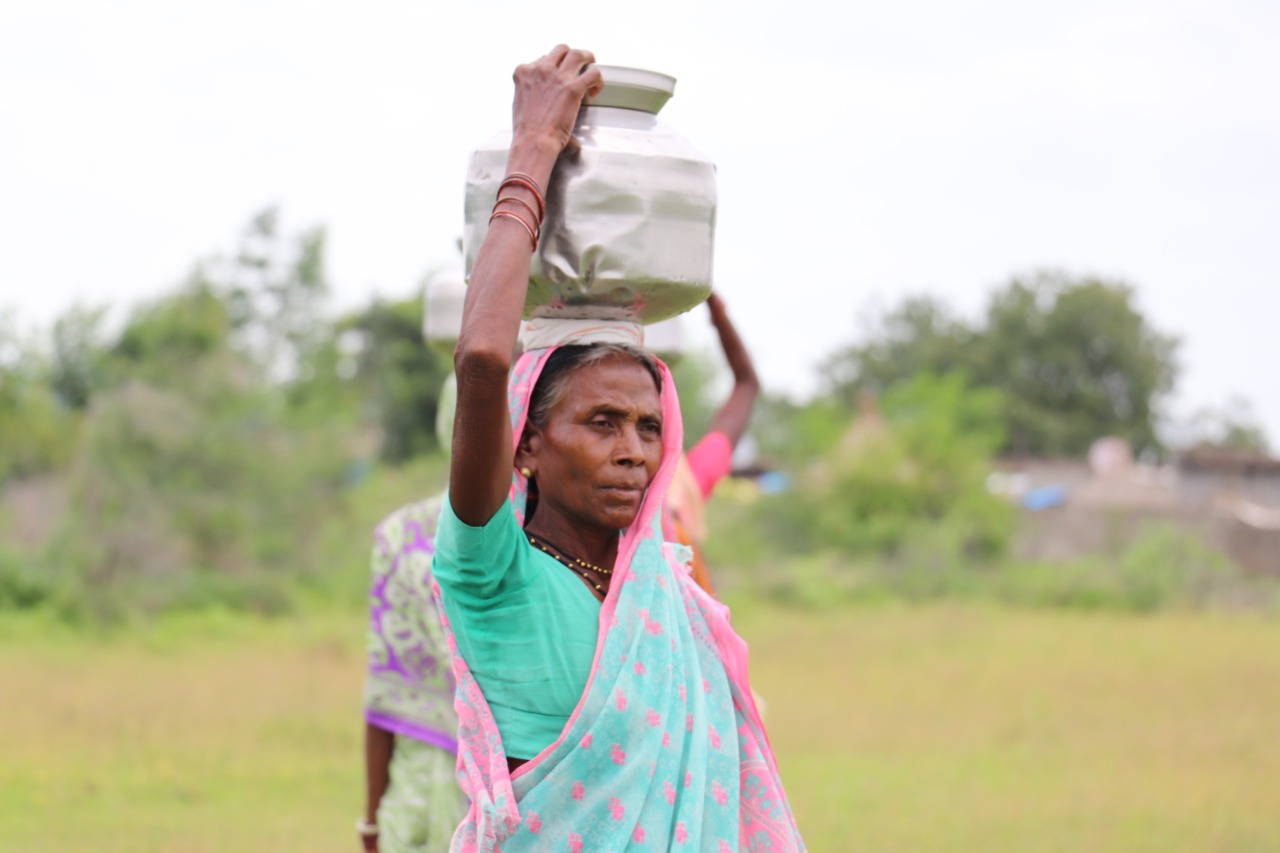- home

- Publication & Resources

- Blog
- ‘You won’t understand how it feels to sleep peacefully, without bruises or broken bones’

‘You won’t understand how it feels to sleep peacefully, without bruises or broken bones’
25-year-old tribal woman Sushma (name changed) held her hands tight every night, made sure her children slept by 11 PM and prepared herself for a battle which she knew she would lose. “Every night my husband would come home drunk. And when he is drunk, even a slightest mistake like less salt in food can make him angry. He would beat me up in front of my children, neighbours, sometimes inside the house, many a times on the streets,” she says.
 Most of the time she escaped with minor injuries like cuts and bruises, but at times she would scream in pain night after night due to the cracked bones.
Most of the time she escaped with minor injuries like cuts and bruises, but at times she would scream in pain night after night due to the cracked bones.
It was a constant fight for her to keep her son away from learning such violence from his father. And she didn’t even want to set a bad example for her daughter that “it is fine for a woman to tolerate assault.”
“My parents got me married when I was a minor. It was not just physical violence, the trauma has made my perception sour towards marriages. I am scarred, what if my daughter also gets a man like him.” she said. The constant worry to secure her daughter’s future triggered inspiration within Sushma. She knew it was important for a girl to have an identity in the society where women are given a “back-seat.”
“After all, women are not just meant to serve meals, wash clothes and get beaten up by their husbands. We needed to speak about our rights and eradicating liquor addiction among men, which is the reason behind most household violence in the village,” said Sushma, a resident of Mandla district, Madhya Pradesh.
In 2009, Sushma along with other tribal women came together to form an organisation that worked to make women financially independent. They went door-to-door to encourage women to join her in making them independent and motivate them to participate in ‘Gram Sabhas’ (local self-government organisation in India of the panchayati raj system at the village or small town level).
“Many women joined and I was happy that I was emerging as a local woman leader. But my alcoholic husband had problem with me travelling around the village, mixing with people, especially men. There were usual fights, but this time I didn’t want to back out,” a much-determined Sushma says.
And when one day her husband, in a drunk-state, started beating her in front of people, she revolted and called police.
“My women members were standing in my support. That day I realised that I had a power which remained unused for years,” the mother of two says.
Participation in ‘Gram Sabhas’ and women programmes continued for Sushma, even as her husband left the house as per police instructions.
It was an act of rebellion for which she had to face criticisms from the community people. In this small Adivasi (tribal) village, a woman living without the support of her husband was considered a sin “even God wouldn’t forgive.”
After coming to know that Madhya Pradesh government reserved 50 percent seats for women candidates in Panchayati Raj and most of the seats go uncontested, she decided to contest Janpad Panchayat elections with the support from the organisation.
Sushma campaigned on core issues like domestic violence, prohibition of liquor consumption inside the house, improving farming activities and addressing women-related problems. “Of course, I lost as many men were not happy that I touched upon issues like violence against women and liquor. But it has given me more visibility in the society, a new identity,” she says.
She might have lost the polls, but now she is even more “determined” to contest next elections in a planned manner.
“If I knew about the power of an organisation, my life along with lives of other Adivasi women would be way better. I am financially and morally independent.
“Now I sleep peacefully at night with my children. You must be thinking what is so unusual about it? But you won’t understand how it feels when you sleep peacefully, without bruises or broken bones, without fear,” she laughs.
 Previous Blog Post Bonded Children Of Labour Minus Childhood
Previous Blog Post Bonded Children Of Labour Minus ChildhoodFeatured Post

International Women’s Day -2021
8 Mar 2021
International Women’s Day -2021 is very special for CASA. It’s a delight to announce, CASA with the support of the Church of Sweden has launched an exclusive Gender Desk to emphasise the importance of Gender Justice work. CASA has been working for Gender Justice all throughout and across our constituencies in all these years. Gender Desk comes to add vigour […]

Overcoming Gender and Poverty Barriers
Poverty has been an inevitable problem in India since the beginning of time. The increasing problems of poverty caused by overpopulation and the unequal distribution of wealth among the people have led to a huge impact on the life of millions in the rural as well as the urban area. A person has to acquire […]

Impact of Climate Change on Women
16 Jan 2021
Climate change is a prevailing problem globally whose hazardous repercussions extend beyond the environment. Shrinking glaciers, extinction of plants and animal species, mutation, rise in the Earth’s average temperature and triggered seasonal fluctuations, are some of the impacts of climate change that have already grabbed the headline. Certain early predictions pertaining to climate changes had […]




